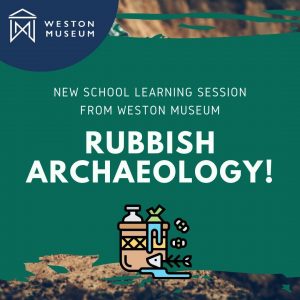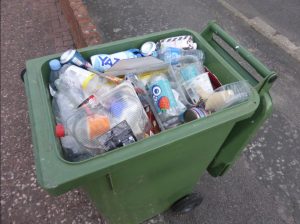 What does our waste say about us? To an Archaeologist, the things that have been put into the ground (either as rubbish or as burial items) can be amazingly useful for learning more about the people that lived in the past. The rubbish that we create now also says a lot about us, and it’s not always good.
What does our waste say about us? To an Archaeologist, the things that have been put into the ground (either as rubbish or as burial items) can be amazingly useful for learning more about the people that lived in the past. The rubbish that we create now also says a lot about us, and it’s not always good.
In a new learning session being launched this academic year, led by the Learning Team at Weston Museum, we will be exploring the topic of Rubbish Archaeology. School groups can discover and contrast the items left behind by previous generations with our possessions and waste that we leave behind today.

This topic uses historical examples from both rubbish pits and burials to illustrate how people lived in the past, with natural biodegradable materials and a stronger connection to nature. This is contrasted with our modern way of living to enable discussion of climate change, plastic pollution and recycling. Children can suggest changes to the way we live and make their own personal pledge at the end of the session.
All Weston Museum learning sessions are focussed on hands on object based learning, where children are able to actively handle artefacts and replicas, create their own design work and reflect upon some of the bigger issues that faced people in the past and now in the present.
Sessions usually last up to 1.5 hours and can be paired with a visit around the galleries to get the full museum experience.
To find out more about a learning session at Weston Museum, including the full range of session topics on offer, head to the Learning Sessions page here. If you would like to enquire about prices and availability (strongly advised, as some months get booked out well in advance), just fill in the enquiry form at the bottom of the learning sessions page or call the Learning Team on 01934621028.
